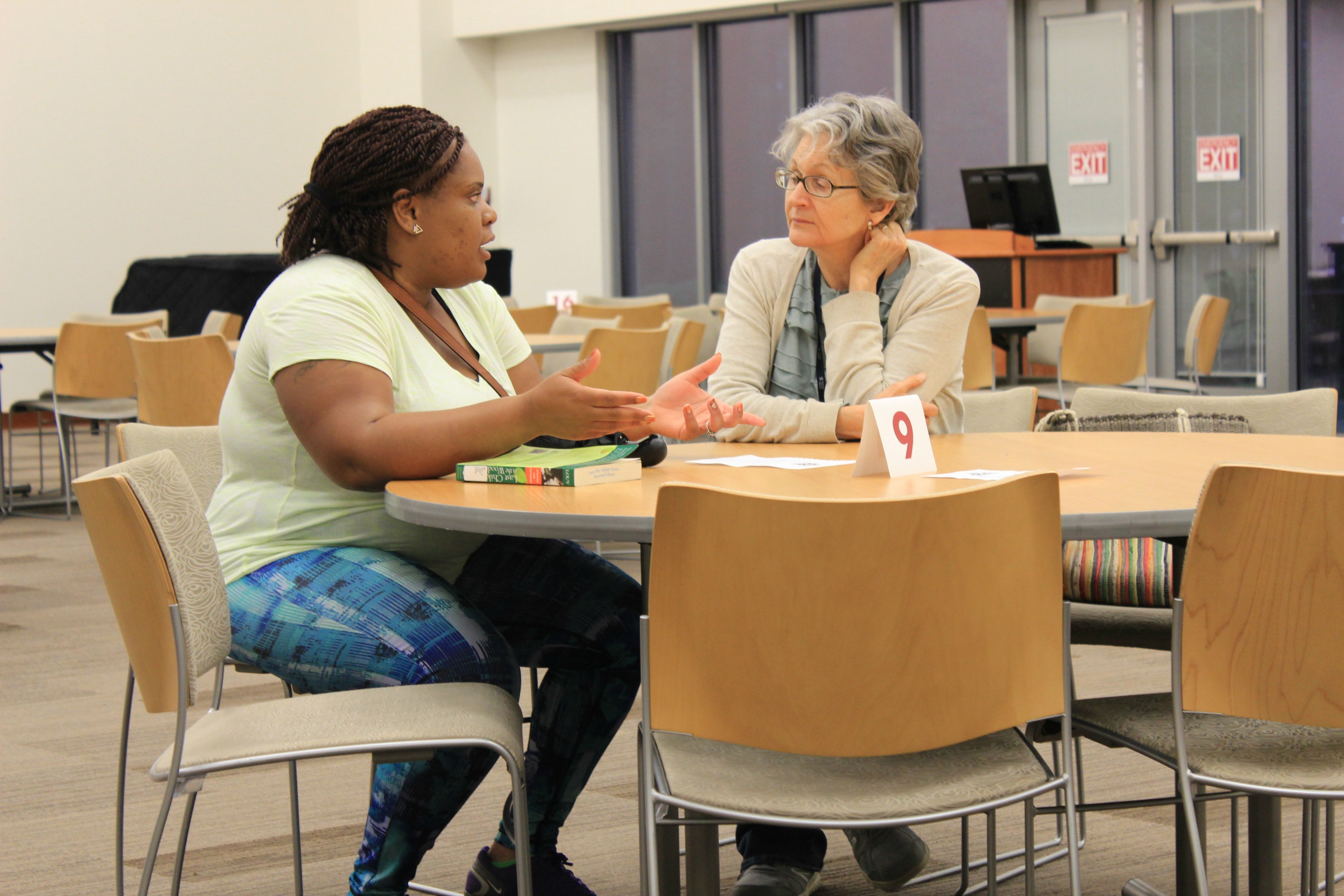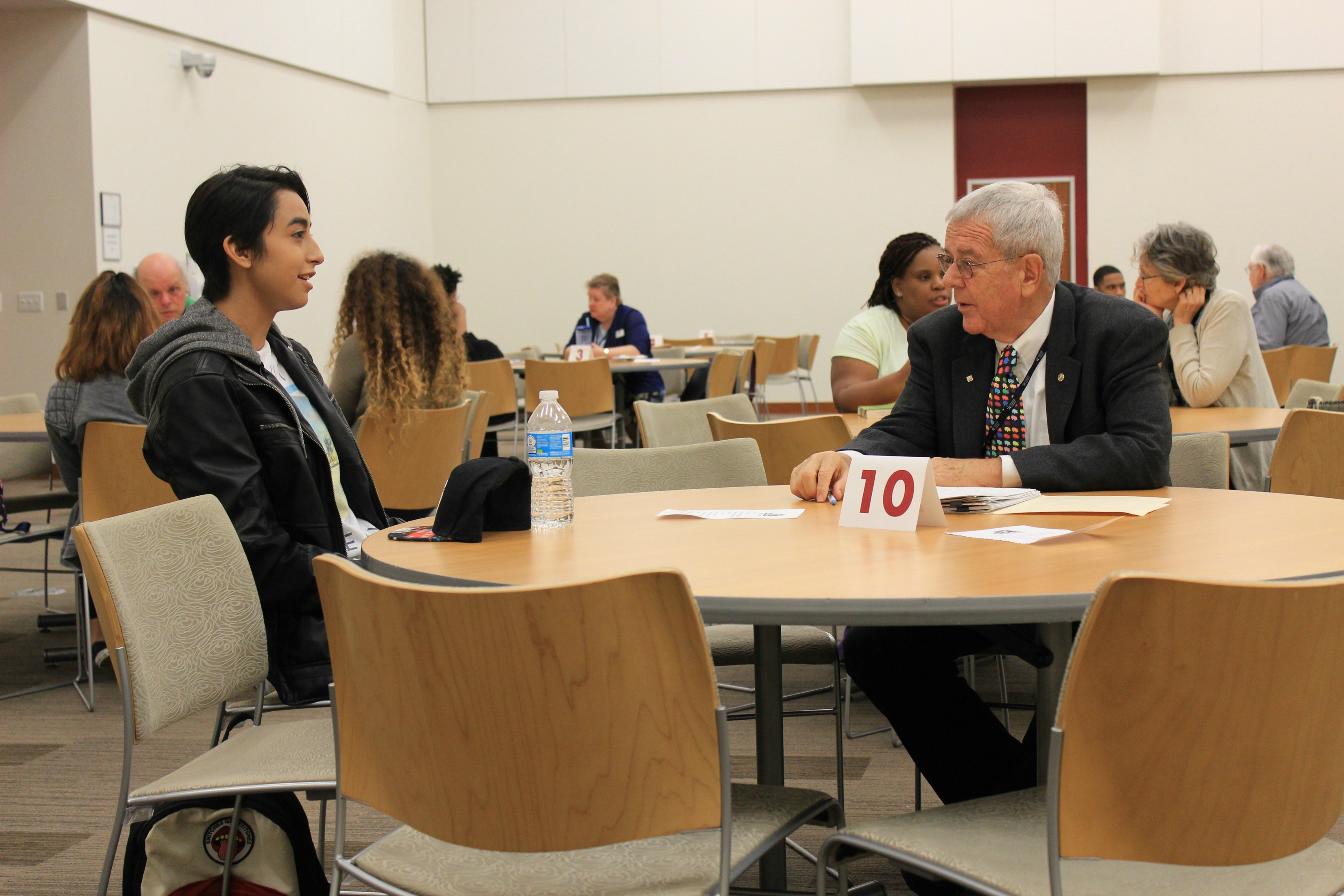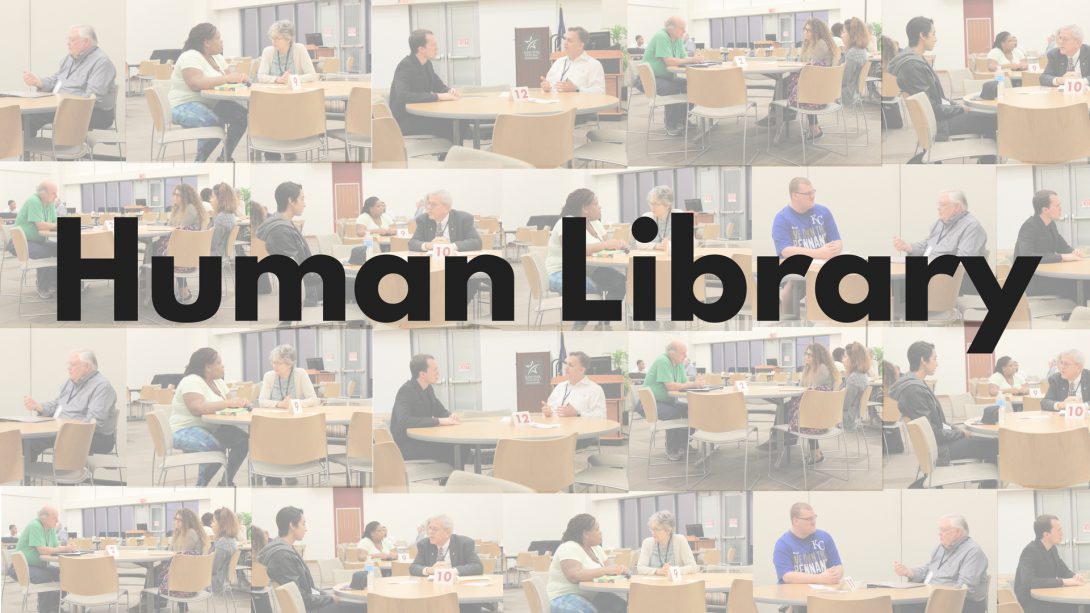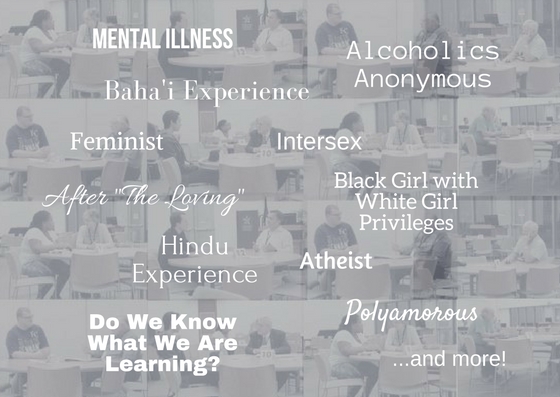By Gabrielle Moore, Editor-in-Chief
Lone Star College-Kingwood student and employee Clayton Huff said “Everybody’s got a story, regardless of what color they are, where they’re from, what they’ve experienced in their life and you can learn a lot from different people’s stories.”
These stories are literally and figuratively brought to life in an annual program called Human Library, hosted by LSC-Kingwood’s non-partisan organization Center for Civic Engagement. Participatory individuals near and far are invited by active members (faculty and staff) of the program to tell their stories and provide informational perspectives and voices for the student-body, essentially as “human books,” as CCE refers to them.
Reaching its fourth year in the program, the Human Library was hosted on March 28 and March 29 in the Student Conference Center.
This program provides students an environment unfamiliar to them and exposes them to novel outlooks, ideas, and voices.
Every year, the human books selected come from characterized backgrounds and have individual stigmas of society that often marginalize and/or normalize their voices by either purposely suppressing or simply misunderstanding them.
Jennifer Boyd, a second-year student said, “I just went in for the grade not knowing that I would find out some interesting information, and it would open my mind to really think more on the issues.”
 Second-year student Jennifer Boyd discusses “Alcoholics Anonymous” with participatory human book Cecilia M. on Mar. 29 in the Student Conference Center. After having discourse with the second human book she checked out, “Intersex”, she left the Human Library feeling “more aware” of realms that were once unfamiliar with her. Photo by Gabrielle Moore.
Second-year student Jennifer Boyd discusses “Alcoholics Anonymous” with participatory human book Cecilia M. on Mar. 29 in the Student Conference Center. After having discourse with the second human book she checked out, “Intersex”, she left the Human Library feeling “more aware” of realms that were once unfamiliar with her. Photo by Gabrielle Moore.
Boyd checked out two books during her visit in the Human Library: “Alcoholics Anonymous” and “Intersex.”
Through “Alcoholics Anonymous,” Boyd learned that the nonprofit organization “teaches people…how to help one another [without getting angry],…not making it a conflict and how to resolve issues when they arise and not try to change their person…to just let them be themselves and just be yourself.”
“Alcoholics Anonymous” was checked out by another couple of students–though with a different perspective and voice from Boyd’s human book–second-year students Michael Sodano and Jennifer Rickman, who found themselves–at first, feeling “awkward”–asking more questions than they could have preconceived of the experience.
“It was a lot like reading a book…but I thought this was almost better than a book because you get to ask them questions then and there; you don’t have to go Google,” Sodano said. “I felt like I got to learn a lot more than if I just read a book about dealing with alcoholism.”
Moreover, students started to open up their own books within themselves, as this was the case for second-year student Victoria Vargas who checked out the book “Do We Know What We Are Learning?”
 Second-year student Victoria Vargas converses with Bradford Goodwin, the human book over “Do We Know What We Are Learning?” on Mar. 29 in the Student Conference Center. Although completely void of expectations of the Human Library experience, Vargas “wasn’t uncomfortable talking about the future…it’s life.” Photo by Gabrielle Moore.
Second-year student Victoria Vargas converses with Bradford Goodwin, the human book over “Do We Know What We Are Learning?” on Mar. 29 in the Student Conference Center. Although completely void of expectations of the Human Library experience, Vargas “wasn’t uncomfortable talking about the future…it’s life.” Photo by Gabrielle Moore.
“I felt very comfortable,” Vargas said. “Like, he started asking me about myself–my siblings, my family and all that, what I thought about doing in the next couple years, where I wanted to go.”
On the subject of her academic future, Vargas said that her human book left her with the advice to “always have something to fall back on” and “have it related to each other.”
As the program’s organizer for this year, Huff found that it “highly exemplifies what’s going on this campus” especially considering the “high majority of the same demographics” in the overall community.
“When you have a program like this, in an area like [Kingwood] with, essentially, one large demographic, you bring in all these demographics and all these different people and all these different religions and different ethnicities and nationalities, and different ideologies; I think it benefits that community as well, because these students here live in this community,” Huff said.




